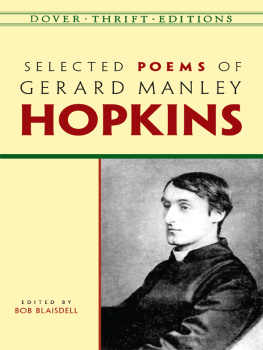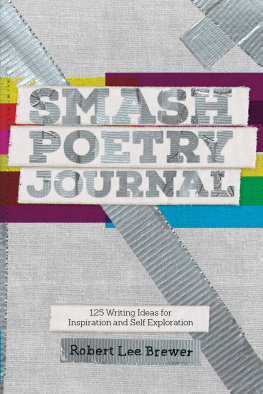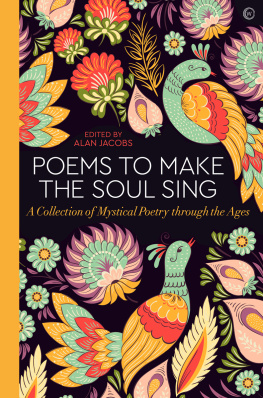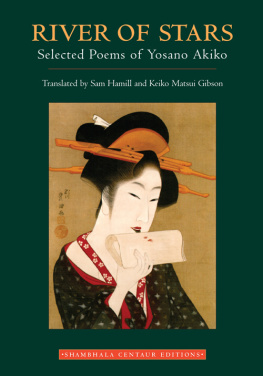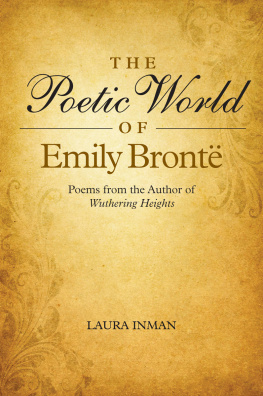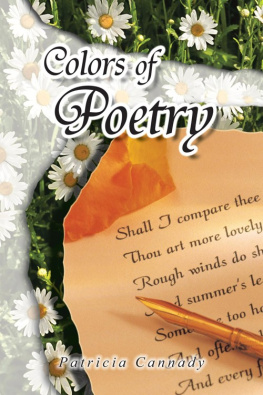Gerard Manley Hopkins (184489) was born in Essex, the eldest son of a prosperous middle-class family. He was educated at Highgate School and Balliol College, Oxford, where he read Classics and began his lifelong friendship with Robert Bridges. In 1866 he entered the Roman Catholic Church and two years later he became a member of the Society of Jesus. In 1877 he was ordained and was priest in a number of parishes including a slum district in Liverpool. From 1882 to 1884 he taught at Stonyhurst College and in 1884 he became Classics Professor at University College, Dublin. In his lifetime Hopkins was hardly known as a poet, except to one or two friends; his poems were not published until 1918, in a volume edited by Robert Bridges.
POEMS AND PROSE OF GERARD MANLEY HOPKINS
SELECTED WITH AN INTRODUCTION
AND NOTES
BY
W. H. GARDNER
PENGUIN BOOKS
PENGUIN BOOKS
Published by the Penguin Group
Penguin Books Ltd, 80 Strand, London WC2R 0RL, England
Penguin Putnam Inc., 375 Hudson Street, New York, New York 10014, USA
Penguin Books Australia Ltd, 250 Camberwell Road, Camberwell, Victoria 3124, Australia
Penguin Books Canada Ltd, 10 Alcorn Avenue, Toronto, Ontario, Canada M4V 3B2
Penguin Books India (P) Ltd, 11 Community Centre, Panchsheel Park, New Delhi 110 017, India
Penguin Books (NZ) Ltd, Cnr Rosedale and Airborne Roads, Albany, Auckland, New Zealand
Penguin Books (South Africa) (Pty) Ltd, 24 Sturdee Avenue, Rosebank 2196, South Africa
Penguin Books Ltd, Registered Offices: 80 Strand, London WC2R 0RL, England
www.penguin.com
This selection first published 1953
Reprinted in Penguin Classics 1985
38
This edition copyright W. H. Gardner, 1953, 1963
All rights reserved
Except in the United States of America, this book is sold subject
to the condition that it shall not, by way of trade or otherwise, be lent,
re-sold, hired out, or otherwise circulated without the publishers
prior consent in any form of binding or cover other than that in
which it is published and without a similar condition including this
condition being imposed on the subsequent purchaser
TO THE MEMORY OF
ROBERT BRIDGES
18441930
POET LAUREATE 19131930,
FRIEND AND ADVISER
OF GERARD MANLEY HOPKINS,
PRESERVER AND FIRST
EDITOR OF HIS
POEMS
*
ACKNOWLEDGEMENTS
THE poems in this selection, taken originally from my Third Edition of Poems of Gerard Manley Hopkins (Oxford University Press, 1948), have since the ninth impression been gradually collated and brought into line in a number of instances with the text of the more authoritative Fourth Edition (O.U.P., 1967) by kind permission of the publishers, and of my co-editor in the Fourth Edition, Professor N. H. MacKenzie, from whom most of the emendations originated. The prose selections from the published works follow the texts of the O.U.P. editions of 19351959 (see below, p..
Moreover this selection would not have been possible without the generous cooperation of the Rev. Philip Caraman, S.J., who, acting for the copyright holders, the Society of Jesus, gave me permission to draw freely from Hopkinss writings. I am also grateful to the Rev. D. Anthony Bischoff, S.J., for allowing me to print passages from the Journal of 18661868, which he discovered in 1947 and which has now appeared in The Journals and Papers of Gerard Manley Hopkins (2nd edn.), 1959.
My thanks are also due to the following: the Oxford University Press, as literary executors of Robert Bridges, for permission to quote from R. B.s notes to the First Edition of Hopkinss Poems; Mr L. Handley-Derry and the Librarian of the Bodleian for permission to reproduce facsimile poems from MS. book B; the late Gerard Hopkins for valuable advice and facilities at all times; Mr E. L. Hillman for helping me with the proof-reading; and lastly my wife for more assistance both manual and critical than I could ever specify.
W.H.G.
CONTENTS
WITH that boyish gusto which is sometimes found in Hopkinss letters to his relations and friends, he once remarked to Robert Bridges: What fun if you were a classic! At that time Hopkins himself was an unpublished poet with very little prospect of even getting into print, to say nothing of being honoured by posterity. Now, however, the slow dialectic of time has brought in its compensations. Chiefly through the care and foresight of Bridges, the small but precious collection of Hopkinss poems has been saved from oblivion. Not only has this eccentric and obscure Victorian poet-priest attained the once undreamt of distinction of being widely read, discussed, and lectured on, but we can now reasonably assume that he himself has been raised to what might be called, in his own idiom, that higher cleave of posthumous being the status of a classic.
The permanent worth of Hopkins as a writer is threefold. Firstly, he is one of the most powerful and profound of our religious poets and is also one of the most satisfying of the so-called nature poets in English; secondly, to isolate a merit which is really an essential part of his total quality, he is one of the acknowledged masters of original style one of the few strikingly successful innovators in poetic language and rhythm; thirdly, the publication of much of his prose notebooks, journals, letters, sermons has given us a body of autobiographical and critical writing which, apart from its broader human interest, throws much light on the development of a unique artistic personality. It is no disparagement of Hopkinss prose to say that its value depends to a large extent, though not entirely, upon what it tells us about the poet himself, and especially about his intense practical concern with those interests which inform and shape his poetry, namely his religion, his personal reading of nature, his love of people, and his critical approach to art and to poetic technique in particular. Of Hopkins the poet much needs to be said; but we may introduce him by observing that he succeeded in breaking up, by a kind of creative violence, an outworn convention. He led poetry forward by taking it back to its primal linguistic origins: he showed how poetry could gain in resourcefulness and power by incorporating in its own artistic processes those natural principles of growth and adaptation which govern our everyday speech which give to a living, developing language its peculiar tang, colour, range, and expressiveness. At the same time he was a learned poet, who knew how to make full use of all that seemed to him good in the whole European poetic tradition. He achieved one important kind of perfection, which both invites and defies imitation. He invites imitation because he uses a large number of highly effective poetic and rhetorical devices, any one or more of which can be imitated; he defies imitation because the Hopkins manner is so essentially a part of the man himself, and is so sharply distinctive, that anything resembling it seems at once to wear the look of pastiche.
No one can read Hopkins for the first time without being struck by two things: the strangeness of his style and the obvious genuineness of his poetic gift. Looking for an author, we discover also a man a man of unusual integrity, both intellectual and moral. This is not to say that Hopkins, as man and writer, had no faults. With his shortcomings as a man and a priest he himself was always deeply concerned to the point of scrupulosity. As a prose writer he can justly claim a certain indulgence, for, with the possible exception of the Commentary on the


